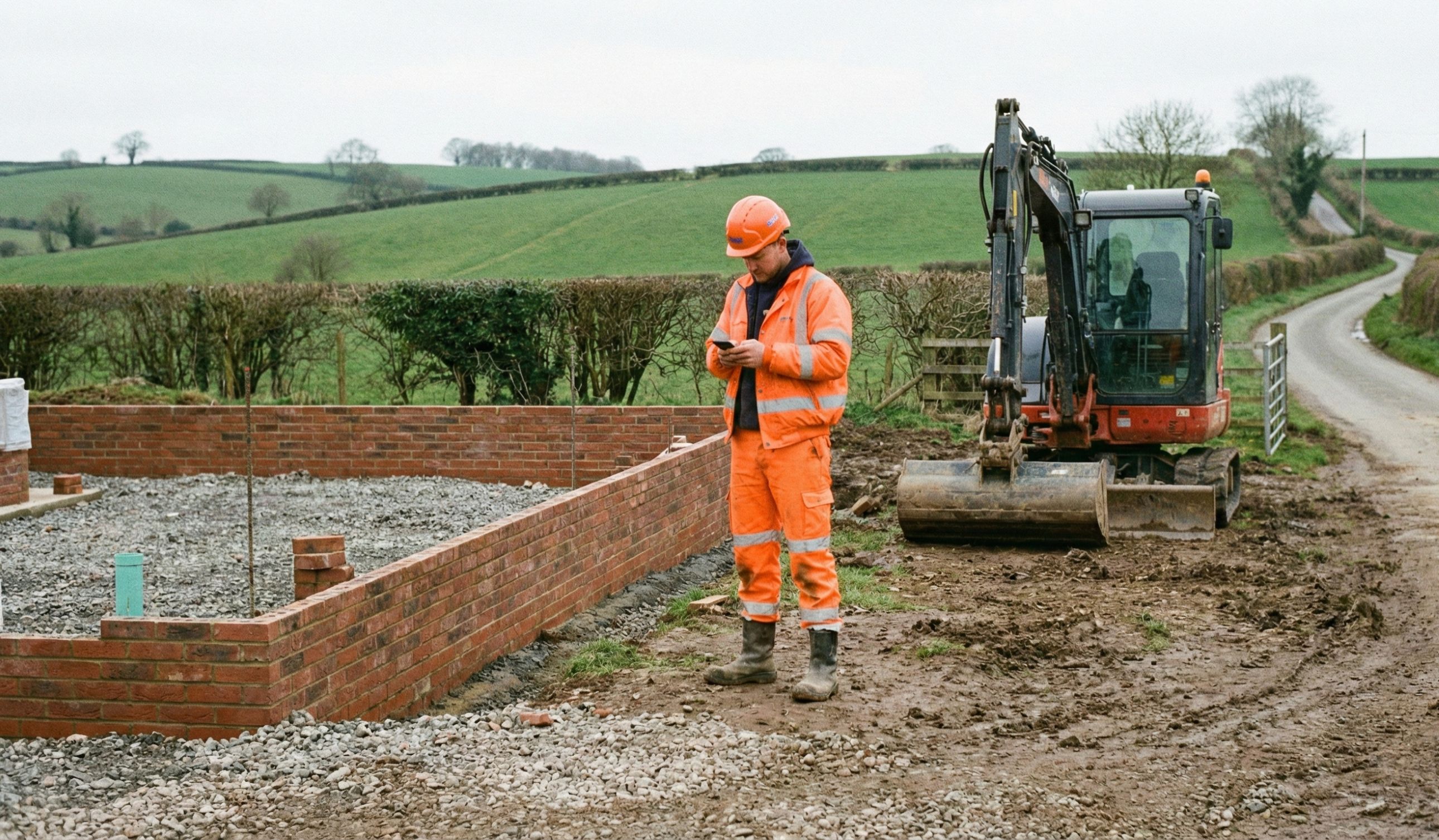Incident reporting is the process of systematically capturing and documenting information about accidents, near misses, or adverse events that take place in a workplace.
Before the rise of the digital age, real-time incident reporting was virtually impossible to achieve.
Legacy systems were a manual process, relying on paper-and-pen and physical filing systems. Later, this evolved to digital records and spreadsheets that still relied on manual data input from physical incident report forms.
Today, with mobile technology and cloud computing becoming commonplace, organisations are no longer restricted by a lack of infrastructure to adopt real-time incident reporting systems.
It’s high time for workplace safety to adapt and let go of manual legacy systems.

Read on to discover why you don’t want to miss out on the benefits of ensuring your employees can report incidents in real-time.
Why is Incident Reporting Important?
There are many reasons why reporting incidents is important to workplace safety. Reporting incidents helps ensure that the problem is identified and addressed promptly. It also provides an opportunity to learn from mistakes.
Having a system to report the different types of workplace incidents is an essential component of occupational health and safety management. It provides stakeholders with the opportunity to identify hazards, risks, or any other potential problems before they have a chance to escalate.
UK employers are obligated to implement an incident reporting system under the Reporting of Injuries Diseases and Dangerous Occurrences Regulations 2013 law (RIDDOR).
This law states that UK employers are obligated to:
- Keep detailed, up-to-date records of any incidents for at least three years from the date it was recorded.
- Ensure the record is accessible to the workplace related to or at the workplace of the person responsible for RIDDOR record-keeping.
- Report any incident that led to non-fatal injuries to workers and non-workers, work-related fatalities, dangerous occurrences, occupational diseases, exposure to carcinogens, mutagens and biological agents, diseases offshore, and gas-related injuries and hazards.
What is Real-Time Incident Reporting
Many organisations still retain manual incident reporting inherited from legacy systems. While these systems may have slight advantages in certain situations, the biggest drawback of pen-and-paper incident reporting is the lack of real-time data.
Since physical forms need to be handed in manually, they are typically only submitted at the end of a shift. This means that it can take hours before supervisors or managers can view the incident reports.
It may take senior management even longer to overview overall workplace safety as they wait to receive compiled reports from different departments.
Thanks to digitisation and the common usage of mobile phones and cloud computing, it is now possible for mobile incident reporting—and hence real-time incident reporting—to become accessible and affordable for mainstream workplaces.
By equipping employees with a mobile incident reporting software, workers can submit an incident on-the-spot through their mobile phones.

Once submitted, supervisors, managers, and senior management will receive notifications of any incident reports submitted, allowing them to respond to the incident within minutes of it happening.
The benefits of real-time incident reporting range from faster response during natural disasters to boosting productivity, increasing profits, improving customer satisfaction and avoiding penalties and public liability.
Let’s look at five different situations where real-time incident reporting can benefit organisations.
Faster Response during Natural Disasters
Not too long ago, Britain was battered by Storm Eunice. Even though warnings were given beforehand for organisations and citizens to prepare themselves for the storm, incidents can still happen in these unpredictable circumstances.
One example is the case of a construction company working on a project at Woking Hilton.
According to the Woking Borough Council, the construction company had secured all materials and equipment in preparation for Storm Eunice.
However, despite taking all necessary safety measures, two workers’ cradles grounded and secured on the southern roof terrace became dislodged. They swung precariously in the high winds, smashing into the side of the building and damaging exterior panels and windows.
With workers and passersby on the ground below in danger, you can see how valuable real-time incident reporting becomes in this situation.
By reporting incidents as they happen, those in charge are empowered to perform a dynamic risk assessment and send the immediate help required or make faster, well-informed decisions to mitigate the risks.
Other than monitoring the safety of staff and passersby, real-time incident reporting during natural disasters can also help organisations uphold the quality of service they provide to their customers.
For example, a telecommunications company may be experiencing signal issues during a big storm. If their workers have an incident reporting app on their phones, they can report issues instantly, such as fallen or damaged towers.
Managers can immediately see all the areas that need repair without wasting time trying to reach or check-in with their staff on the phone or otherwise.
They can make decisions right away to resolve the issues in as little time as possible, improving their telecommunications company's service to customers.
Improve Security Management
Enabling faster response to incidents with mobile incident reporting software is especially valuable for security guard management.
When managers don’t have to wait for the end of a security guard’s shift to be notified of an incident, they can take quick action or implement preventative measures to correct the problem. This can save time, money, and effort for organisations in the long run.
With mobile incident reporting, employees can log hazards and incidents with a timestamp record. Although the incident may not warrant immediate intervention, having the timestamp can be beneficial. One example is a customer swearing at an employee. Having a timestamp record could become useful if the information is later required for police reports.
Furthermore, mobile incident reporting software equipped with multimedia and GPS capabilities can allow security guards to add photos and geo-locations to provide more context.
With this added information, organisations can save even more time by reducing the need for site inspections before implementing a corrective action plan or taking preventive actions.
This is extremely valuable because unresolved issues could cause or increase further damage to a client’s site or facility. Reducing the delay to address the problem can prevent significant financial loss for organisations.
Traffic Accidents, Congestion and Hazards
Another situation where real-time incident reporting is advantageous is when it comes to reporting traffic accidents, congestions, and hazards. This can be extremely valuable for companies dealing with fleet management.
While commercial third-party apps can provide traffic reports and hazard information, this information might come in too late because it relies on data from multiple users.
Some hazards may not even get reported, or a hazard may be in a remote area where there are not many public users who can report it.
Having a mobile incident reporting system as part of internal fleet management means that when a driver comes across a hazard, accident, or congestion in real-time and reports it, other fleets are notified immediately and can make decisions to reroute as necessary.
The ability to do this can significantly improve efficiency and quality of service to customers by minimising delivery delays and reducing the risks of accidents.
Ensure Compliance with RIDDOR
Last but not least, real-time incident reporting can help organisations comply with the stipulated reporting timescales under RIDDOR.
The reporting timescales vary according to the type of injury or accident:
- Any accident resulting in death, injuries requiring hospital treatment, and dangerous occurrences, needs to be reported as soon as possible and no later than 10 days after the incident.
- Any accident that leads to a worker being incapacitated for more than seven days needs to be reported within 15 days of the incident.
- Any case occupational disease needs to be reported as soon as a diagnosis is confirmed and reported to the employer.
Failing to report these incidents to the relevant local authorities within these timescales can lead to penalties or fines for breaches of RIDDOR.
Manual incident reporting, which deals with paperwork, filing, or manually updating spreadsheet reports, could mean that the person in charge of reporting to RIDDOR gets the incident report too late.
These delays are completely eliminated with real-time incident reporting to help companies stay compliant with RIDDOR requirements.
How to Replace Manual Incident Management Processes
Despite the clear advantages of real-time incident reporting, switching from legacy systems to mobile incident reporting software can pose challenges.
To make the transition easier, we recommend looking for the following features when choosing your incident reporting software:
- Mobile-friendly with an easy user interface
By making it easy for employees to use the software on their personal or office mobile phones, you will improve adoption rates, productivity, and efficiency. - Custom incident types
Different workplaces face different risk factors. Look for a system that allows you to create custom incident types that fit your organisation. - Media upload capabilities
Some incident reporting systems that allow you to upload photos, audio notes, and PDF documents into the incident report can provide vital additional context. - Integrated Reporting
Integrated reporting on one platform simplifies systems management, reduces user training and administrative paperwork, speeds up follow-ups, minimises manual errors, and offers more accessible reporting options.
Conclusion
Responding faster during natural disasters, improving security, protecting the environment and reducing liability linked to environmental spills, improving fleet management, and complying with RIDDOR are just some of the benefits of real-time incident reporting.
Other benefits of real-time incident reporting that organisations across all industries can enjoy are boosting productivity, improving customer satisfaction, achieving optimal employee-led workplace safety, and higher retention rates.
To discover how a mobile incident reporting software can help you reap the advantages of real-time incident reporting, go here to learn more about Protector’s incident reporting solution.




